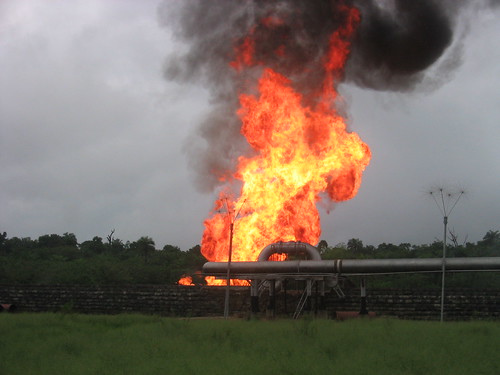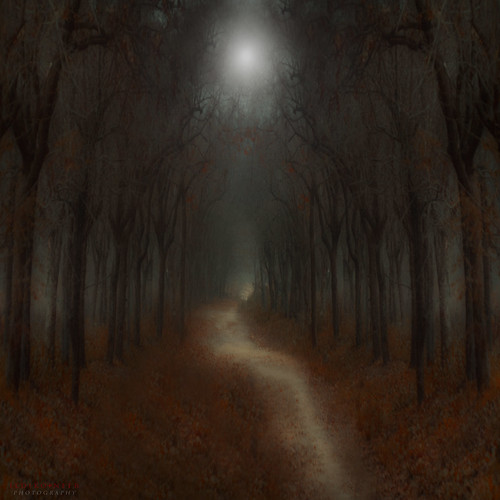
Celebrating election results in Burma
Like most of you I suspect, I've been watching developments in Syria Libya and Egypt
They seem to have not been so much in the news lately, but I assume that the horrors we hear about in the Congo and Sudan , Liberia and Sierra Leone
It goes on. Iraq and Iran of course, the situation in and around Palestine Caucasus or is it quiet there for the time being? Pakistan and Afghanistan , Kazakhstan China , Russia , the EU , the US Zimbabwe , Burma and North Korea most obviously and other administrations of 'questionable legitimacy'. Saudi Arabia , Indonesia , Venezuela, Haiti , Colombia , Malawi , Russia , Mexico
How about that?
It's an odd position to be in. I've contributed to a couple of debates on Facebook recently – one with Paul about Bankers’ pay, one with Dominic about Afghanistan – nothing very unusual about either of those topics you might think, but in both cases I seem to have been exposed as some sort of heretic. There seems to be this thing that I’m just not really supposed to say. I get derision and outrage, but mostly I get, well, silence. End of debate.
My heresy is that, despite everything I've said above, things are in many ways a lot better than they used to be. I'm not talking about all the fun you can have with your new gadgets or on the internet or the fact that I can buy decent coffee in my local supermarket (although that last one is very important). I mean big things, important things, things about war and poverty and justice. I’m saying that in many ways things are substantially better now than they used to be.
Why is that so hard to countenance?
For a start, moaning is fun. I’m pretty sure it was R.D.Laing’s book 'Knots' that had a chapter called 'Ain’t It Awful'. It goes like this - Put any two people together long enough and sooner or later they’ll start playing ‘Ain’t it Awful’. Someone will say something about the state of the world these days – how frightening it all is, how useless, how much worse than it used to be, and they’ll be sighing and tutting and shaking their heads – it’s one of those conversational dances we get into – ‘setting the world to rights’ as we say around here. The regulars at the bar do it, the students in the refectory, the old geezer at the bus stop, Friends on Facebook, me and my Bro. We’ve all done it. It’s sort of satisfying and agonising at the same time. Right-wingers are as guilty as Left. Old-style Conservatives tend to talk about how things used to be so much better at some point in the past, Lefties like to talk about how things should be so much better by now. (New-style Conservatives don't care as long as they make money out of it.) But it's all talk. We’re not planning on actually doing anything about it. Basically we’re just enjoying having a good old bitch about things, and, in the case of the left-wingers, showing off how well-informed we are into the bargain.
So, about these debates on Facebook – these can actually get quite involved, usually stemming from someone posting some news article or other, and the people are generally quite well-informed, coherent thinkers, but in these cases the debate quickly turned to pessimism, misanthropy, cynicism, hopelessness, bitterness even, and I had to ask - If you don’t think anything can ever change, why on earth are you bothering to post these articles? What’s the point? Isn’t it just one big game of Ain’t It Awful? (And isn’t your silence just a reaction to my not playing by the rules?)
One response from Dominic, to his credit, was “As much as my own work may be pissing in the wind, I will continue to piss into that wind so long as I have piss to piss.” The situation may be hopeless but he has to try. I can respect that, but I’m not so defeatist. Paul said I was just navel-gazing.
My position, my heresy then, has been to suggest, as politely as possible, that things are not so hopeless, and that things can be changed, or, more importantly, that things have been changed for the better – that we have changed things. Us humans have changed things for the better.
More precisely, my point would be that to know whether something is possible, it’s useful to know whether anything like it has been done in the past. You need a precedent. If not then you really are a navel-gazer. So do such precedents exist? Or am I totally deluded?
That little fragment – ‘these days’ is crucial to the game. I hear it not just from my Friends but also in the media, where supposedly expert commentators tell us repeatedly how dangerous the world is these days. ‘In this dangerous world we live in...’ they say as if it’s just taken for granted that this is an unusually scary period to live through. ‘Compared to what?’ I shout. What other time in history are you thinking of that was better than now? Have you done any history whatsoever?
Admittedly up until recently this was a rather subjective assessment, based only on my layman’s understanding of history, but it seemed to me that you didn’t actually have to know a lot about history to appreciate how unrelievedly horrible the world has been to appreciate the way things are now, even including the contemporary horrors mentioned at the top. The way things are now in Afghanistan and Syria , Sudan and Somalia
Even just in my own lifetime the whole of Eastern Europe and much of Asia belonged to Russia Russia at the time was in a nuclear stand-off with the USA Latin America were by-words in revolution and military dictatorship. Africa was a continent of warring nations, some armed by the USSR , some by the USA China was like North Korea Cambodia or Chile China or Czechoslovakia Africa remains in pretty much the same state it was in then, give or take. And before the Cold War there were the World Wars, and before them the Imperial wars and the religious wars, and the wars of conquest and pillage through the middle ages and back and back into prehistory. And it must be remembered that the nations that were conquered and enslaved by the Europeans were not peaceful indigenous kittens before we so rudely interrupted. The Noble Savage is a myth.
Through most of human history it has been taken for granted that the vanquished peoples in any war would be massacred, raped, tortured or sold into slavery – all of them- women and children and farm animals too. Within societies, religious, racial and sexual minorities could be abused with impunity most of the time, and misfits imprisoned, tortured and executed on the slightest pretext, often for public amusement. Women belonged to their men folk to do with pretty much as they pleased. Child abuse was pretty much a fact of life. Of course all these things still go on but hardly anywhere are they considered normal or acceptable, even where they are still common. These days human rights, civil rights, women’s rights, democracy and a just and dependable legal system are things most people throughout the world expect or aspire to. No matter how badly applied those principals are, or how powerful the fundamentalist or totalitarian backlash, it is completely new in the history of humanity that these principals are so widely considered to be the things to aim for.
Up until recently I’d have had to admit that this was very much a personal impression. I’m not a historian and have only a rather patchy knowledge of what has gone on. Recently though I’ve come across a couple of books that have made me think that I might be onto something – The Angels of our Better Nature by Steven Pinker and Why the West Rules (for now) by Ian Morris. Both have their flaws but one thing that one can’t fail to be impressed by is the sheer magnitude of the horror described in both. Up until recently I don’t think I’d quite grasped the sheer intensity or the immensity of the brutality, or its frequency, in conquests, crusades, civil wars, invasions, inquisitions, and just as a routine part of life.
Pinker’s book is no gratuitous gore-fest though (although I found some of his chapters unfinishable*). His central point is that the quantity of brutality and death in the world has steadily declined over time. This may seem preposterous when we think of the carnage of the First World War or the Holocaust, Stalin’s Russia or Mao’s China, but taking into account the sizes of the populations involved, Pinker claims that there are any number of genocides, wars, invasions and persecutions, going right back to the beginnings of recorded history, that far outrank them. If Pinker is even mostly right then that would be a remarkable claim. There are all sorts of objections to Pinker’s methods of course – whether one tenth of the population of Europe (numbering in the millions) being killed in the Second World War can be compared with an entire nation (numbering in the thousands) being wiped out in some battle four thousand years ago for example, but I think the basic premise holds. When we talk about how dreadful the world is these days, we really don’t know what we’re talking about.
The point in any case is not to belittle the sufferings of those who are killed and tortured today but instead to not underestimate the terrible experiences of all those people in the past. I know it doesn’t help to tell someone being tortured in Syria
My guess is that you are still squirming. Maybe you think my view of the past vs. the present is simply wrong. Well as I said I am not a historian and I can’t justify taking up any more space here with what I have learned of the subject, but I suspect there may be other, more subjective reasons for your resistance and these need clearing away before you decide that it’s simply my understanding of history that is at fault.
Your first impulse might be to question my motives. Perhaps you assume I must be very naïve, or complacent or cynical. I hope what I’ve said at the start deals with the accusation of naivety and previous postings here should tell you how complacent I am about the way the world is run (and if you still think I’m complacent skip ahead to the penultimate paragraph - the one that begins ' But to end on a darker note...') Remember, I’m the one arguing for change here. I'm not the one throwing up his hands and saying nothing can be done.
But I can see that it would suit business to draw attention away from oppression and exploitation in countries where they want to trade. Probably trade does to some extent promote peace, but however businessmen and politicians might like things to appear, that doesn’t change the way things actually are. If things genuinely are better I’m not going to deny it just because I don’t like capitalism. I might want to refine my definition of ‘better’ (see that penultimate para.) but Less Violence does seem 'better' to me, by any definition.
In any case, ‘The West’ isn’t a small part of the world any more, and it’s not the only place women work and have the vote, where children are not just cheap labour and people are not just routinely picked up off the streets for speaking out. It's not perfect - of course it's not perfect. It never will be. It's more like crime fighting, or medicine - always having to deal with the next thing, never winning outright. But it's also about knowing that if we give in, then things certainly will get worse.
For those among you who have not given up, the activists and the radicals, your main objection will probably be that people are best motivated by rage, and any good news is bound to, to some extent, defuse that rage and make us complacent; as if the only way to motivate people is to feed them an unremitting diet of misery, without ever conceding that anything good can happen.
Well, maybe it’s a matter of temperament but I find that knowing about past successes gives me courage. Good news makes me more likely to try, not less.
Something that certainly makes me gag, as a Leftie, is conceding that any genuine good can come from capitalism or party politics. We want change to come in a truly popular movement. Any suspicion that businessmen or politicians have had any part whatsoever in reform (or worse, stand to gain from it) is taken to compromise or even invalidate those reforms. I’m as suspicious of the free market as anyone, but the idea that true reform has to be totally untainted by vested interests or politics is probably very naïve. There’s a certain brand of revisionist history here that dismisses all past reforms as only those which suited the Market or the government. Certainly capitalism has a way of cashing in regardless, and obviously trade is easier where there is no unrest, but I’m not at all convinced that women’s rights or the abolition of slavery happened only because it was good for the market. Legislation on child labour, environmental standards and working conditions for example, are not at all popular with businessmen. The changes have been made, I think, to a large extent because people believed that change was right, and also that it was realistic. I don’t care too much if the bosses and the politicians want to take some of the credit when things get done, as long as they get done.
But to end on a darker note...
My real fear for the future is not about violence or oppression.
My guess is that the world will get progressively less violent, less oppressive, less dangerous, as it has done (I think Pinker is right here) consistently since the beginnings of human history. I think what some of you disparagingly consider ‘Western’ comforts (democracy, the rule of law, women’s rights, labour regulations, environmental regulations and so on and so forth) will spread. What’s happening in that broad swathe of brutality that runs south from Kazakhstan through the Middle East to Central Africa , where despots rule over countries with violence and fear will come to seem very archaic. Likewise the idea that foreign governments might think it a good plan to go in and try to run those countries for their own ends by force will also come to seem very strange.
What I fear might happen in this newly pacified world is that corporations will continue to become larger in size and fewer in number and quite quickly become too big to be much bothered by governments. It’s already happening. Their impossibly rich managing directors and chief executives will be beyond democracy and national laws and they will be able to do whatever suits them. Government will become a technocratic appendage at best, organising those things it is not profitable enough for the free market to bother with. Eventually everything that does not produce the maximum possible return will stop happening altogether. In the mean time most of our descendents won’t even notice. They’ll work long hours doing mindless jobs but they’ll have their entertainments and their gadgets to keep them quiet. There will perhaps be a kind of intrinsic Third World in each region - trailer parks and slum estates, providing cheap labour, as there are in the USA now
I always thought Brave New World was a more plausible dystopia than 1984. The idea of Big Government running the world is already coming to seem very 20th Century.
So that’s what I think we’re really up against. Anyway we need to remember that kings do not rule by divine right any more, and it is not normal to own slaves or to have dissenters disembowelled in the town square. That’s true not because of something the government said – it’s because people decided not to live that way any more.
And if I am wrong about the history? Well, in the words of a good friend of mine:
‘Naïve then, but really, I just can’t bear the idea that we’re just going to go on as we have, the human race I mean, contaminating the place, torturing each other, for ever. I can’t. I just have to believe we can do better than that. I suppose it is like an article of faith with me. I have to believe in it.’
‘Naïve then, but really, I just can’t bear the idea that we’re just going to go on as we have, the human race I mean, contaminating the place, torturing each other, for ever. I can’t. I just have to believe we can do better than that. I suppose it is like an article of faith with me. I have to believe in it.’
* I don’t usually like to recommend Further Reading in my blog because I like to think I can get the salient points across without it but in this case (and whatever you may think of other things he has said) I can entirely recommend having a look at at least the first few chapters of Pinker’s book http://www.stevenpinker.com/publications/better-angels-our-nature. (I actually had to return it to the library before I’d finished it so I don’t know what his conclusions will be, but that doesn’t alter the power of those first few chapters.) Morris’s book http://ianmorris.org/whythewestrules.html is also problematic in its method but I don’t know of another book that provides quite such a huge perspective on the history of both ends of Eurasia simultaneously.


